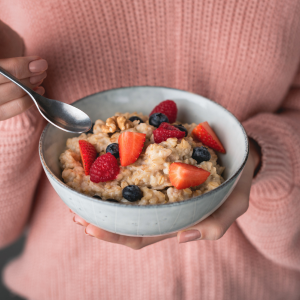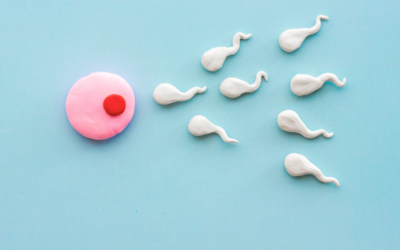Have you recently found yourself wondering why you feel so exhausted, emotional, or even bloated? If you’re 8 weeks pregnant, you’re right in the thick of early pregnancy symptoms, and what you’re feeling is completely normal. At 8 weeks pregnant, your body is working overtime to support your growing baby, and the changes—both physical and emotional—are more noticeable than ever.
This stage often brings a whirlwind of symptoms, from morning sickness to mood swings, leaving many women feeling overwhelmed or even a little anxious. But don’t worry—you’re not alone, and understanding what’s happening at 8 weeks pregnant can make a world of difference.
In this post, we’ll explore what’s going on inside your body at 8 weeks pregnant, what causes these early symptoms, how this phase can impact your daily life, and how to cope with the changes. You’ll also learn about common myths, the benefits of understanding your body during this crucial time, and practical tips for easing the journey ahead.
By the end, you’ll feel more informed, reassured, and confident in navigating this exciting chapter.
Let’s dive in and talk about what it really means to be 8 weeks pregnant.
Table of Contents
What is 8 Weeks Pregnant?
Being 8 weeks pregnant means you’re about two months into your pregnancy journey. While your baby is still tiny—about the size of a raspberry—a lot is happening inside your body. Your baby’s major organs are starting to form, and the embryo officially graduates to being called a fetus by the end of this week.
At 8 weeks pregnant, many women experience a wide range of symptoms, from fatigue and nausea to breast tenderness and food aversions. These changes are largely driven by the surge of pregnancy hormones like hCG, estrogen, and progesterone, which are essential for supporting your baby’s growth.
In simple terms, 8 weeks pregnant marks a crucial period of development where your body is working hard to lay the foundation for the next seven months of pregnancy. Understanding this stage helps you appreciate the incredible work your body is doing right now.

What to Eat at 8 Weeks Pregnant
When you are 8 weeks pregnant, your body is working hard to support your growing baby, and what you eat plays a crucial role in your health and your baby’s development. Your diet at this stage should focus on balanced nutrition, hydration, and managing early pregnancy symptoms like nausea or food aversions. Eating well doesn’t mean eating for two—it means eating smart.
Here’s a detailed guide on what to eat at 8 weeks pregnant to nourish both yourself and your baby.
Key Nutrients to Focus On at 8 Weeks Pregnant
At 8 weeks pregnant, your baby’s major organs are forming. Your body needs specific nutrients to support this critical phase:
1. Folic Acid
- Supports neural tube development and prevents birth defects.
- Foods to eat: Leafy greens (spinach, kale), fortified cereals, lentils, oranges.
2. Iron
- Prevents anemia and helps with increased blood volume.
- Foods to eat: Lean red meat, spinach, beans, fortified cereals.
3. Calcium
- Helps build your baby’s bones and teeth.
- Foods to eat: Dairy (milk, cheese, yogurt), fortified plant-based milks, almonds.
4. Protein
- Essential for the baby’s tissue and organ growth.
- Foods to eat: Chicken, eggs, beans, tofu, Greek yogurt.
5. Omega-3 Fatty Acids (DHA)
- Supports brain and eye development.
- Foods to eat: Salmon (limit to safe amounts), chia seeds, walnuts.
6. Vitamin D
- Supports bone health and immune function.
- Foods to eat: Fortified dairy or plant-based milks, eggs, and mushrooms.
7. Fiber
- Helps combat pregnancy constipation, which is common at 8 weeks pregnant.
- Foods to eat: Whole grains, fruits with skin, vegetables, legumes.

Sample Daily Meal Plan at 8 Weeks Pregnant
Breakfast:
- Fortified whole-grain cereal with milk (or plant milk)
- A banana or an orange
Mid-Morning Snack:
- A handful of almonds
- A boiled egg
Lunch:
- Grilled chicken or chickpea salad with spinach, bell peppers, and tomatoes
- Whole-grain bread or brown rice
Afternoon Snack:
- Low-fat yogurt with chia seeds
- Berries
Dinner:
- Baked salmon or tofu
- Steamed broccoli and carrots
- Quinoa or sweet potato
Evening Snack (if needed):
- Whole grain crackers with hummus
- Herbal pregnancy-safe tea
Tips for Eating Well at 8 Weeks Pregnant
- Eat Small, Frequent Meals: This helps manage nausea and keeps blood sugar stable.
- Stay Hydrated: Aim for 8-10 glasses of water daily. Add lemon or cucumber slices for flavor.
- Avoid Empty Calories: Skip sugary snacks and opt for nutrient-dense foods.
- Listen to Your Body: Respect cravings in moderation but stay mindful of nutrition.
- Manage Food Aversions: Find alternatives. If you can’t tolerate chicken, try beans or lentils.
Foods to Avoid at 8 Weeks Pregnant
Being 8 weeks pregnant means there are foods best avoided to protect your baby’s health:
- Raw or Undercooked Meats: Risk of harmful bacteria.
- Unpasteurized Dairy: Risk of Listeria.
- High-Mercury Fish: Like swordfish, king mackerel.
- Raw Eggs: Risk of Salmonella.
- Processed Junk Foods: High in unhealthy fats, sugar, and sodium.
- Caffeine: Limit to 200 mg per day (about one cup of coffee).
- Alcohol: Avoid completely.
How to Manage Morning Sickness with Food
Morning sickness is common at 8 weeks pregnant, but the right foods can help ease symptoms:
- Keep Plain Snacks Nearby: Crackers or dry toast can settle your stomach.
- Eat Before Getting Up: A light snack before rising can reduce nausea.
- Ginger: Ginger tea or ginger candies may help calm nausea.
- Stay Cool: Cold foods (fruit, smoothies) are often easier to tolerate than hot meals.
Healthy Craving Swaps at 8 Weeks Pregnant
If you’re experiencing cravings at 8 weeks pregnant, you can satisfy them with healthier alternatives:
- Sweet Cravings: Opt for fresh fruits, dates, or yogurt with honey.
- Salty Cravings: Choose air-popped popcorn or lightly salted nuts.
- Crunchy Cravings: Go for carrots, cucumbers, or apple slices with nut butter.
Signs You’re Eating Well at 8 Weeks Pregnant
If you’re on track with your diet at 8 weeks pregnant, you’ll likely notice:
- Steady, healthy weight gain as advised by your doctor.
- Improved energy despite early pregnancy fatigue.
- Fewer digestive issues, like constipation or bloating.
- Feeling satisfied and nourished without overeating.
How to Care at 8 Weeks Pregnant
Being 8 weeks pregnant brings many changes. Your body works hard, and good care helps you and your baby stay healthy. Here’s exactly how to care for yourself at this stage.
1. Prioritize Rest and Manage Fatigue
You’ll likely feel more tired than usual.
- Take short naps
- Go to bed early
- Avoid overexertion
- Ask for help with chores
2. Eat a Balanced Diet
Nutrition is key at 8 weeks pregnant.
- Fresh fruits, vegetables, whole grains
- Lean proteins like chicken, beans, eggs
- Dairy or calcium-rich foods
- Healthy fats from nuts, seeds, avocados
- Drink 8-10 glasses of water daily
- Eat small, frequent meals to manage nausea
3. Take Prenatal Vitamins
Continue daily prenatal vitamins with folic acid, iron, calcium, and DHA. Take them with food if they upset your stomach.
4. Manage Morning Sickness
Nausea is common at 8 weeks pregnant.
- Eat crackers before getting up
- Avoid strong smells
- Sip water or ginger tea
- Ask your doctor about vitamin B6
5. Gentle Exercise
Light activity can help energy and mood.
- Walking, stretching, prenatal yoga, swimming
- Avoid anything high-impact or risky
6. Care for Mental Health
Your emotions may feel intense.
- Talk to supportive people
- Journal your feelings
- Try meditation or breathing exercises
- Seek help if anxiety is high
7. Avoid Harmful Substances
Protect your baby at 8 weeks pregnant.
- No alcohol, smoking, or drugs
- Limit caffeine (under 200 mg/day)
- Avoid raw/undercooked meat, soft cheeses, and high-mercury fish
- Use safe cleaning products
8. Keep Prenatal Appointments
Your first prenatal visit usually happens now.
- Share any symptoms
- Ask questions
- Follow medical advice
9. Set Boundaries
Trust your healthcare provider, not myths. Politely ignore unhelpful advice.
10. Prepare for the Months Ahead
- Start a pregnancy journal
- Research prenatal classes
- Plan finances and leave
- Begin baby essentials list
Baby Development at 8 Weeks Pregnant
At 8 weeks pregnant, your baby is about the size of a raspberry, around 1.6 cm long and weighing less than 1 gram. Though still tiny, this week marks rapid and important development.

What’s Developing at 8 Weeks Pregnant?
Major Organs
The heart beats strongly at 150-170 beats per minute. The liver, kidneys, lungs, and brain are forming. The digestive system is developing.
Arms and Legs
Arms and legs are growing longer. Fingers and toes are starting to separate but remain webbed. Elbows and knees are forming.
Facial Features
Eyelids are developing, but stay closed. The nose tip and upper lip are becoming defined. Tiny ears are forming on both sides of the head.
Nervous System
The brain is growing rapidly, dividing into regions. Nerve cells multiply and form early connections.
Bones and Muscles
Cartilage is forming, laying the base for bones. Small muscles are developing through movementsthat that are too tiny to feel.
Baby’s Movements
Though you won’t feel it yet, your baby is making small, jerky movements to help muscles grow.
Placenta and Umbilical Cord
The placenta begins hormone production and strengthens. The umbilical cord fully forms, delivering nutrients and oxygen while removing waste.
Other Developments
Taste buds and tooth buds are forming. The tail at the spine’s base is almost gone. Your baby’s shape becomes more human-like.
Why This Week Matters
Organs and systems forming now are crucial for future health. Avoid harmful substances. Focus on good nutrition, hydration, and prenatal care.
Causes of Early Pregnancy Symptoms at 8 Weeks Pregnant
At 8 weeks pregnant, the main culprit behind your symptoms is hormones—lots of them. These hormones are responsible for everything from morning sickness to bloating. Here’s how they impact you:
- hCG (Human Chorionic Gonadotropin): This hormone surges rapidly and is responsible for nausea, a heightened sense of smell, and that constant need to pee.
- Progesterone: It helps maintain your pregnancy but can slow down digestion, causing bloating and constipation.
- Estrogen: This hormone supports uterine growth and blood flow but also contributes to mood swings and tender breasts.
Your body is also diverting a lot of energy to your growing baby. This shift leaves you feeling tired, even if you’re getting plenty of sleep.
In short, the symptoms you’re experiencing at 8 weeks pregnant are signs that your body is doing exactly what it should be to nurture your little one.
Benefits of Understanding the 8 Weeks Pregnant Stage
Grasping what’s happening when you’re 8 weeks pregnant can make a huge difference in how you handle this phase. Knowledge empowers you to feel more in control and less anxious. Here’s why it matters:
- Reduced Anxiety: Knowing that symptoms like nausea, fatigue, and mood swings are normal can ease your worries.
- Better Self-Care: Understanding your body’s needs allows you to prioritize rest, hydration, and nutrition.
- Enhanced Bonding: Recognizing the developmental milestones at 8 weeks pregnant can deepen your emotional connection to your baby.
- More Informed Choices: When you understand your body’s signals, you’re better prepared to communicate with your healthcare provider.
- Emotional Well-being: Feeling informed helps reduce stress, which is beneficial for both you and your baby.
These benefits contribute to a healthier pregnancy experience overall. When you understand what’s happening at 8 weeks pregnant, you can approach each day with confidence, knowing that your symptoms, though sometimes uncomfortable, are a natural part of this incredible journey.
Impact of 8 Weeks of Pregnancy on Daily Life
Being 8 weeks pregnant can significantly impact your daily life, from how you feel physically to how you interact emotionally with others. Here’s what to expect:
- Energy Levels: Fatigue is very common. Simple tasks might leave you drained, making it important to pace yourself and rest when needed.
- Eating Habits: Morning sickness and food aversions can make meal planning tricky. You might crave strange combinations or suddenly dislike foods you once loved.
- Emotions: Hormonal shifts can amplify emotions. You might cry at a commercial or feel overwhelmed without any clear reason.
- Work Life: Balancing work and early pregnancy symptoms can be challenging. Communicating with your employer about flexible schedules can help.
- Social Life: You might start avoiding social gatherings, especially if you’re not ready to share your pregnancy news and want to steer clear of alcohol or certain foods.
- Relationships: Partners and family might not fully understand what you’re going through, which can lead to tension. Open communication is key.
At 8 weeks pregnant, these changes are temporary but impactful. Learning to adapt your daily routine, setting boundaries, and practicing self-care can make this period more manageable and less stressful.
How to Navigate Life at 8 Weeks Pregnant
Coping with life at 8 weeks pregnant requires intentional self-care and practical strategies. Here’s how you can make this phase smoother:
1. Prioritize Rest
- Listen to your body’s need for extra sleep.
- Short naps can help combat overwhelming fatigue.
2. Manage Morning Sickness
- Eat small, frequent meals to keep nausea at bay.
- Keep crackers or dry snacks nearby.
- Stay hydrated but sip liquids slowly.
3. Balance Nutrition
- Focus on nutrient-dense foods like fruits, vegetables, lean proteins, and whole grains.
- Prenatal vitamins are essential at this stage.
4. Gentle Exercise
- Light walks or prenatal yoga can boost your mood and energy levels.
- Always consult your healthcare provider before starting any new routine.
5. Communicate Clearly
- Share your feelings and needs with your partner, family, or friends.
- Don’t hesitate to reach out for emotional support.
6. Plan for Appointments
- Keep up with prenatal visits.
- Start jotting down questions or concerns for your doctor.
7. Set Realistic Expectations
- Accept that some days will be harder than others.
- Allow yourself grace and patience.
Implementing these steps can make being 8 weeks pregnant more manageable, helping you stay calm, healthy, and connected to your body and your baby. Remember, it’s about progress, not perfection.

Common Myths or Mistakes at 8 Weeks Pregnant
There are many misconceptions about being 8 weeks pregnant. Let’s clear up a few:
Myth 1: Morning Sickness Only Happens in the Morning.
Nausea can strike at any time of the day, not just in the mornings.
Myth 2: You Should Be ‘Glowing’ Already.
Not every woman feels radiant early in pregnancy. Fatigue and nausea are far more common than a glow.
Myth 3: You Can Eat for Two.
At 8 weeks pregnant, your baby is tiny and doesn’t need double the calories. Focus on quality, not quantity.
Common Mistake: Ignoring Symptoms.
Brushing off extreme fatigue or severe nausea without consulting a doctor can delay needed care. Always communicate openly with your healthcare provider.
Knowing the truth behind these myths helps you navigate 8 weeks pregnant with greater confidence and realism.
Conclusion
Reaching 8 weeks pregnant is a significant milestone. Your body is going through remarkable changes to support the tiny life growing inside you, and while the symptoms might feel overwhelming at times, they’re a sign that things are progressing as they should.
From morning sickness to emotional ups and downs, every woman’s experience at 8 weeks pregnant is unique. Understanding what’s happening inside your body and knowing how to care for yourself can make this journey more comfortable and less stressful.
Take comfort in knowing that the fatigue, nausea, and cravings won’t last forever. Soon, you’ll move into the next trimester with renewed energy and a growing belly to show for it.
If you found this guide on being 8 weeks pregnant helpful, please share it with other expecting moms, leave a comment about your experience, or subscribe for more pregnancy tips and support. Together, we can make this journey smoother, one week at a time.
Frequently Asked Questions (FAQ)
Q1: What is 8 weeks pregnant in simple terms?
A: 8 weeks pregnant means you’re two months into pregnancy. Your baby is growing fast, and your body is adjusting with various symptoms like nausea and fatigue.
Q2: What causes symptoms at 8 weeks pregnant?
A: Hormonal changes, particularly hCG, estrogen, and progesterone, are the main causes of symptoms like nausea, mood swings, and bloating.
Q3: How can being 8 weeks pregnant improve my life?
A: Understanding this stage helps you practice better self-care, reduces anxiety, and strengthens your bond with your baby.
Q4: Is 8 weeks pregnant scientifically proven to be significant?
A: Yes, this is a critical developmental period where major organs begin forming, confirmed by medical research.
Q5: How long does it take to feel better after 8 weeks pregnancy?
A: Many women start feeling relief from nausea and fatigue after the first trimester, around 12-14 weeks.
Q6: Can anyone experience being 8 weeks pregnant the same way?
A: Symptoms vary. While some women feel fine, others struggle more. It’s different for everyone.
Q7: What’s the best way to start caring for myself at 8 weeks pregnant today?
A: Prioritize rest, balanced nutrition, hydration, and gentle exercise. Listen to your body and follow your doctor’s advice.







